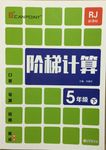题目内容
Few,if any,instruments shape national culture more powerfully than the materials used in schools. Textbooks are not only among the first books most people meet;in many places they are,along with religious texts, almost the only books they have. A study in South Africa showed that fewer than half of pupils had access to more than ten books at home. In 2010 a study by Egypt' s government found that,apart from school textbooks, 88% of Egyptian households read no books.
The degree to which a government keeps control of the textbooks used in classrooms is a good guide to its commitment to ideological(意识形态)control. Where that desire is strong, governments are likely to produce the textbooks themselves or define carefully what goes into them.
America, s State Department employs people to keep an eye on other countries' textbooks,in an effort to understand better how their people think and what their governments want them to think. Other countries probably do the same.
Textbooks have long been a source of worry. After the attacks on America on September 11th 2001 ,some in both America and Saudi Arabia,including officials,supposed that Saudi Arabia,s curriculum of intolerance was responsible, at least in part,for the emergence of al-Qaeda (基地组织).
Sometimes the requirements of the state are more clearly seen in what textbooks leave out. The world has long criticized Japan for the way its textbooks whitewash the country,s history,in particular dressing up Japanese war crimes. The New History Textbook,for example, which was submitted for government approval in 2000 ,played down Japan' s aggression in the Sino-Japanese war of 1894―1895 and the occupation of China in the 1930s and 1940s, and avoided mention of the use of sex slaves by its armies or the rape of Nanjing.
In America most of the disputes about textbooks are home-grown. Liberals worry that their children are being taught a nationalistic version of history that emphasizes the wonders of industrialization and plays down slavery and the killing of Indian tribes. By contrast, Conservatives complain about inadequate education of love for their country and too much secularism (政教分离论).In 2010 the T exas board of education managed to remove Thomas Jefferson, author of the Declaration of Independence,from the state's list of important revolutionary figures, apparently because of Jefferson's insistence on the separation of church and state. He was,however, swiftly restored.
As long as textbooks are issued or approved by the state,they will remain a political issue. But as access to other textbooks is enjoyed more widely,some of the dominance they now enjoy will weaken.
( ) 4. The author's purpose of writing this passage is .
A. to present his findings of the importance of textbooks
B. to inform the readers of present practices of textbooks
C. to explore the contribution of the government to textbooks
D. to argue against the government in the control of textbooks
( ) 5. Governments will probably produce the textbooks themselves and decide the contents when .
A. people have strong desire to read
B. governments hope to reform education
C. governments want to control ideology
D. governments expect to understand people better
( ) 6. Which of the following is NOT included in the textbooks of relevant countries?
A. Curriculum of intolerance in Saudi Arabia.
B. Japanese war crimes in Japanese textbooks.
C. Wonders of industrialization in American textbooks.
D. Thomas Jefferson in Texas' present textbooks.
( ) 7. While talking about textbooks, the author seems to think that .
A. they should be controlled by the government
B. home-grown disputes are easier to settle
C. they should be a political issue
D. they are not necessarily so
4. B逻辑推理题。短文全篇从教材的重要性到各国教材的编写情况的介绍无不都在告知读者目前世界上教材的使用情况。A项仅首段能够证明;C项明显以偏概全;D项表述根本在短文中不存在
5. C细节理解题。见第二段。
6. B事实判断题。第五段的第二句点题.,A项表述与第四段表述吻合;C项见六段的第二句表述;D项见第六段的最后两句表述。
7. D逻辑推理题。见最后一段的表述。A项表述与本文最后一句观点相悖;B项观点无从找到;作者只是说"只要教科书是由国家批准,就会仍然是一个政治问题",而非"应该是一个政治问题",所以,C项与文中表述不符。

 阶梯计算系列答案
阶梯计算系列答案